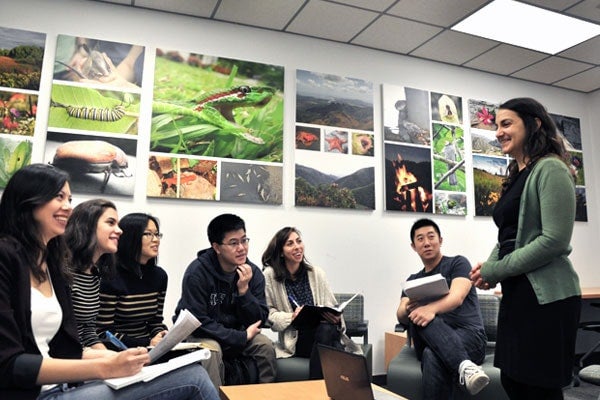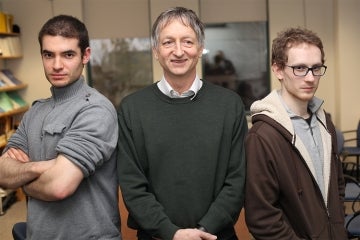
Transforming the undergrad experience: evolutionary medicine
Published: November 28, 2014
There has been a small outbreak of evolutionary medicine courses at North American universities, and Nicole Mideo is optimistic that it will be contagious.
Mideo, an assistant professor of ecology and evolutionary biology, introduced an evolutionary medicine course into the department's curriculum last winter, offering spaces for 60 students. The course was so popular that this year's class is open to 100 students.
Evolutionary medicine is a nascent field that lies at the intersection of evolutionary biology and medicine. It explores health and disease from an evolutionary perspective.
“Most research into disease is done from a biomedical or molecular perspective, looking at the biochemical pathways that lead to disease," Mideo says. “This overlooks the fact that we're talking about organisms interacting with us that have their own ecology and evolution. They are not static. They can and do respond quickly and evolutionarily.”
Dr. David Fisman, an infectious disease epidemiologist who teaches at U of T’s Dalla Lana School of Public Health, is delighted to see evolutionary medicine being taught to undergraduates, given his own experience.
“I 'grew up' medically (in the early 1990s) in a hospital-centric view of medicine,” Fisman says. “Now my focus is much more on health determinants in populations, and I feel like I have a much better understanding of illness, especially severe illness cared for in hospitals, as a downstream consequence of upstream interactions between people, the environment and historical contexts.”
Mideo’s aim is to imbue her students with this broader perspective.
“What I like to have students realize is that to have an understanding of disease, you need to understand all aspects – both the biomedical scale and the evolutionary scale.”
A portion of the course is devoted to considering how human evolution might have affected susceptibility to disease; the balance explores the evolution of parasites and pathogens that cause disease and how what humans do to them may change them. It has explored malaria and its prospects for vaccination, as well as cancer and how cells can become drug resistant, considering whether the goal is to improve health and minimize cancer.
Yannay Khaikin, a fourth-year specialist in biology, was so taken with the course content that he created a Ted-Ed video that explored one idea: how germs spread and whether that’s related to how ill they make people.
“I'd done a Ted-Ed video before, and this time, I found an interesting idea that I wanted to tell people about,” Khaikin says. “I love this idea of germs evolving and not being virulent, so I jotted some basic ideas down and spent time in the summer writing the script.”
Upon reflection, he's not surprised that the evolutionary medicine course sparked his imagination.
“The course is unique,” he said. “We're using evidence-based reading from the literature, hot off the presses. We're actually reviewing research data.”
Mideo said she deliberately avoids using a textbook for the course, even though a few good guides have been published.
“I didn't want to be constrained, because there is so much cool stuff coming out each month, so the students get to dive into some recent research,” she says.
This year, Ebola is also on the syllabus.
“We'll have a great time talking about that,” Mideo says. “We'll evaluate what's happening in the media and whether we should be more concerned about seasonal flu.
“There's so much cool material.”



